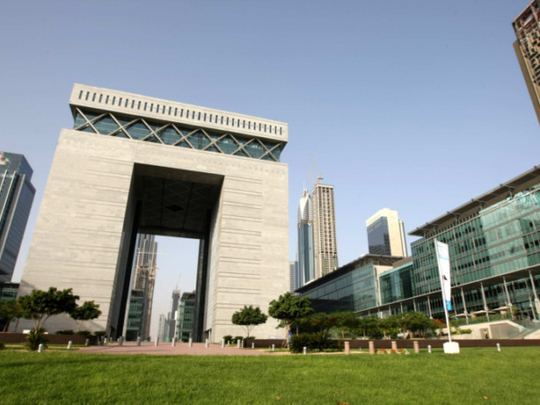
Dubai: The DIFC Laws Amendment Law 2014, which amends the Regulatory Law 2004 and various other laws related to the Dubai International Financial Centre, is expected to give a new boost the financial services business from DIFC.
The Amendments that will come to effect tomorrow (Thursday, August 21) makes a number of significant changes to the Dubai Financial Services Authority’s (DFSA’s) regulatory regime and investment laws.
Under the set of amendments, the Collective Investment Law 2010 is amended to allow the creation of a new category of fund, called a Qualified Investor Fund (QIF). This type of fund would be available to professional investors willing to make an investment of at least $500,000.
The minimum investment under the newly amended laws is lower than the $1 million minimum initially proposed by the DFSA in a draft of the rules for public consultation earlier this year.
Each QIF would be limited to 50 investors. As an addition to the existing categories of DIFC funds, the new QIF rules provide for lower regulation of funds specifically designed for higher net worth investors. QIFs will be offered only through private placements. The new class of funds is expected to boost the DIFC’s growth as a domicile for funds in competition with some of the leading international fund domiciles.
The amendments simplify and improve the structure and process for DFSA regulatory decisions and for appeals against those decisions. Under the changes, the DFSA will make all first instance decisions and must follow specified procedures designed to ensure its decisions are fair and reasonable.
On the regulation front, the amendment simplified the process for appealing against DFSA decisions with the Financial Markets Tribunal (FMT) continuing as an independent tribunal but with a revised role of reviewing DFSA decisions. The Regulatory Appeals Committee (RAC) which used to hear appeals from DFSA decisions will be abolished.
The changes also strengthen the DFSA’s supervisory and enforcement powers in line with international practice. A new provision has been introduced which prohibits misleading, deceptive, fraudulent or dishonest conduct related to financial products or services in the DIFC.
New powers are also given to the DFSA to suspend a licence or registration for up to twelve months and to prohibit Firms from using misleading names. The DFSA already has the right to withdraw licences.
“These amendments are an important step in simplifying and improving the structure and procedures for decision making and review of DFSA decisions. They will also strengthen DFSA supervisory and enforcement powers improve the supervisory oversight of auditors and provide new opportunities for fund managers and investors,” said Ian Johnston, Chief Executive Officer of the DFSA.
The current framework for the supervisory oversight of Auditors in the DIFC is also improved by, for example, introducing the registration of Audit Principals, strengthening Rules on Auditor independence and making other changes to ensure consistency with international auditing standards.
“They [the amendments] are considered desirable and appropriate for the maturity of the DIFC, given that it has now experienced a decade of operations. They also ensure that the regulatory regime continues to evolve to reflect best international practice,” said Johnston.










